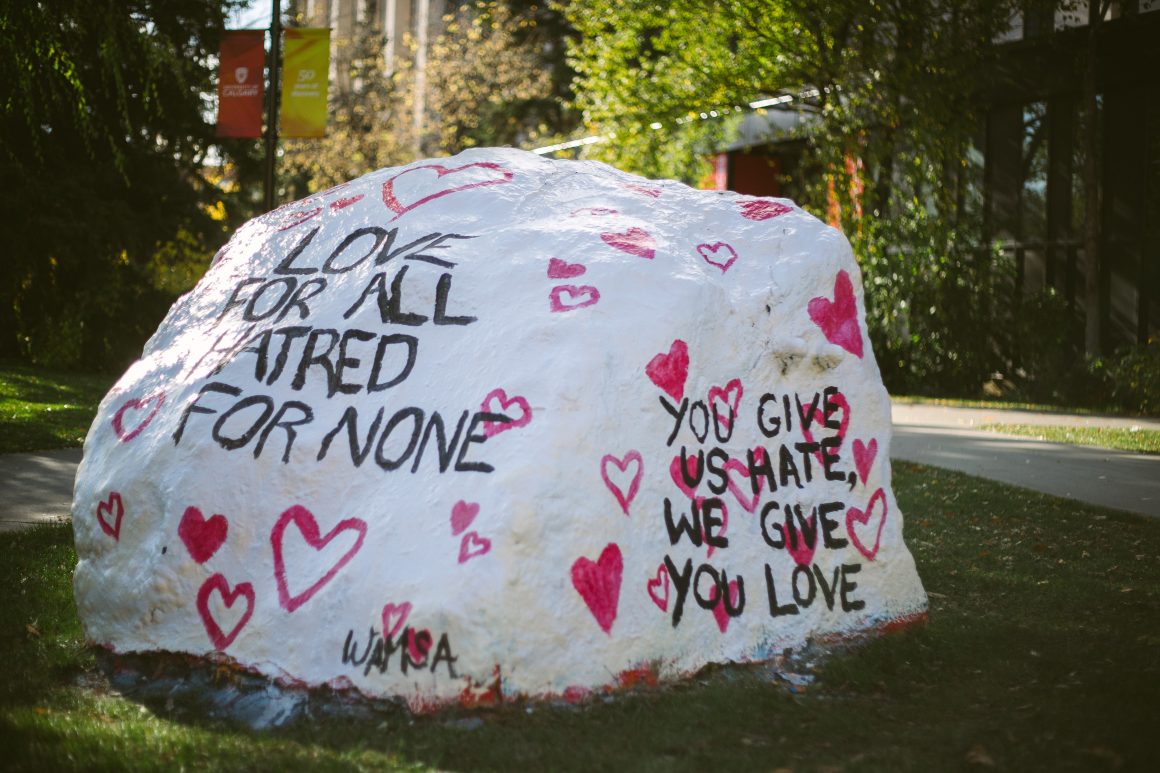
Should we debate hateful perspectives?
By Andrew Kemle, November 1 2016 —
In a span of less than a month the University of Calgary has seen two separate controversies regarding distribution of hateful material. Anti-Muslim posters were found around campus on Oct. 6. And the Christian Truth Activists (CTA) — a group of anti-LGBTQA evangelicals — presented students with graphic and sensationalist images near the Q Centre just two weeks later.
Both incidents sparked outrage, re-igniting the ceaseless debate over whether or not such actions constitute hate speech.
In Canada, this question would fall under the preview of Section 319 of the Criminal Code. The actions of the CTA are not criminal in nature as they were intended to bring about debate on a religious issue, while the Calgary Police Services stated that the anti-Muslim posters do not violate any provisions of the Criminal Code. In legal terms, neither incident is considered hate speech.
The very existence of hate speech laws in Canada is contentious, with some people viewing the laws as a violation of the Charter rights. For these two particular cases there isn’t a point in opening the debate — because there isn’t much we can legally do to counteract these hateful messages.
But that doesn’t mean that there’s nothing we can do. And much like if there were no hate speech laws at all, the responsibility to speak out against hatred is that much larger as a result.
The best way to deal with hate preachers or of any variety is to voice your dissent, whether a legal course of action is available to you or not.
Tell these people and your fellow students — loudly, proudly and in as unified a voice as you can create — that these hateful ideas have no room in our society and that we stand with the victims of hatred. Show solidarity and prevent these people from getting a foothold on our campus.
These hate preachers do not have a right to an audience, nor do they reserve the right to have their views respected. If you think someone is acting or speaking repulsively, say so.
By speaking out, you have the opportunity to rip intolerant arguments — like the ones displayed on our campus last month — to shreds.
By speaking out, you voice dissent, ensuring that others who perhaps had not previously given much thought to the debate know your side and the criticisms directed at something like the CTA.
More importantly, you form solidarity with the targeted group and the act of vocally opposing hatred can at least form a strong support network for victims of discrimination. It could, if the voices were unified or strong enough, prevent future instances from occuring. It will be known that voicing such an opinion carries with it the potential for great backlash or at least a multitude of turned backs.
Whether legal action is available to you or not, the most important thing is to not be a bystander when witnessing acts of hatred. The students that came to the aid of both our Muslim students as well as the Q Centre shows that we are more than capable of doing so.
Unfortunately, future instances of hate or intolerance are bound to rear their ugly heads — if not at school, then somewhere else. As long as we’re not willing to stand and watch, the ability for it to get a foothold can be severely weakened.
This article is part of a head to head. Click here to read the other side of the argument.
